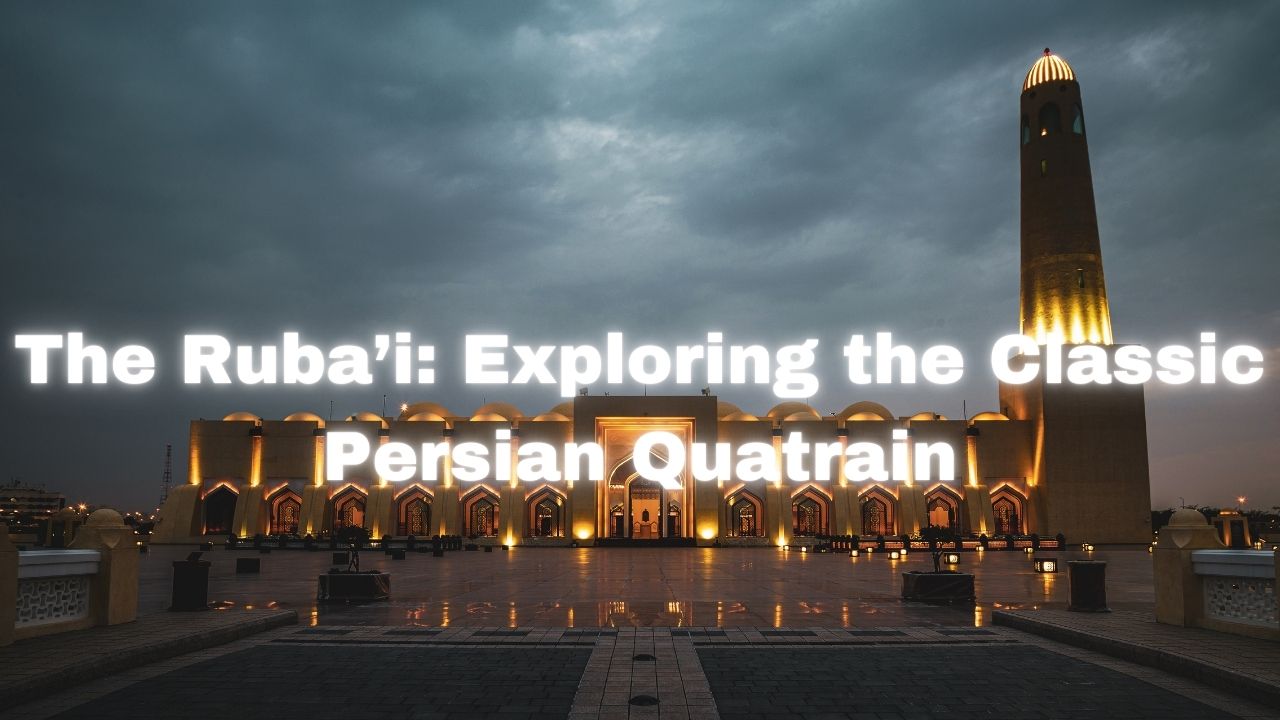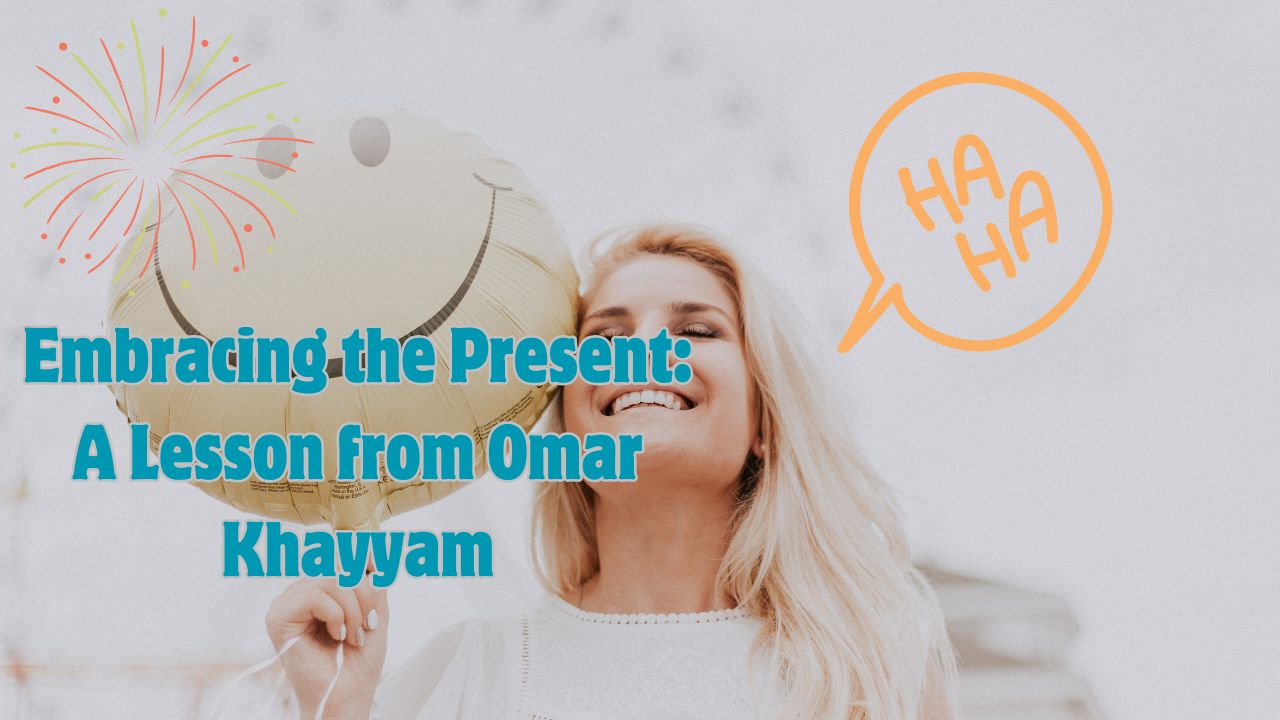In the endless stream of life, it's all too easy to get swept up in the currents of stress, anxiety, and overthinking. We often find ourselves consumed by thoughts of the past or future, worrying about situations we cannot control. But centuries ago, the great Sufi poet Rumi shared a powerful antidote to this condition in a simple yet profound quatrain from his Rubaiyat.
Quatrain in Persian:
اندیشه و غم را نبود هستی و تاب
آنجا که شرابست و ربابست و کباب
عیش ابدی نوش کنید ای اصحاب
چون سبزه و گل نهید لب بر لب آب
Translation of the Quatrain:
Thoughts and sorrows cannot endure or survive
Where there is wine, music, and meat to thrive.
Drink the eternal joy, O friends, with no end,
Like flowers and grass, embrace the river and blend.
A World Beyond Worry
Rumi opens the quatrain by painting a picture of a world where thoughts and sorrows hold no power:
"Thoughts and sorrows cannot endure or survive
Where there is wine, music, and meat to thrive."
The "wine" and "music" Rumi speaks of here aren’t just literal. Wine, in Sufi literature, often symbolizes divine love or spiritual ecstasy, while music and meat evoke the sensory pleasures of life. These represent the things that bring joy, connection, and fullness to our lives—experiences that allow us to step out of the chains of worry. In this state of joy, thoughts and sorrows lose their grip.
Embrace Eternal Joy
In the next lines, Rumi invites his friends—and us—to fully embrace this joy:
"Drink the eternal joy, O friends, with no end."
Here, Rumi urges us to not just seek momentary pleasures but to indulge in the deeper, everlasting joy that can be found when we stop overthinking. It's an invitation to live in the present, to appreciate life as it is, and to find a more profound sense of contentment. The phrase "eternal joy" hints at a joy that is not fleeting, one that stays with us when we connect with something greater than ourselves—whether it’s through spirituality, love, or the beauty of nature.
Flow Like Nature
The final line of the quatrain ties Rumi’s message back to nature:
"Like flowers and grass, embrace the river and blend."
Rumi frequently uses nature as a metaphor for human existence. Just as flowers bloom and grass grows beside a river, harmonizing with the flow of life, so too should we surrender to the natural ebb and flow of existence. Life is a river, constantly moving, and instead of resisting it with anxious thoughts, Rumi encourages us to "blend" with it, finding harmony and peace in its course.
Lessons for Today’s World
Rumi’s message feels as relevant today as it did centuries ago. In a world where we are constantly bombarded with distractions, worries, and pressures, this quatrain is a reminder that joy can be found when we choose to let go. When we surround ourselves with the things and people that bring us happiness and focus on the beauty around us, our anxieties fade. Like the flowers that bloom near the river, we too can learn to thrive by embracing the natural flow of life.
So next time you feel overwhelmed by thoughts or worries, remember Rumi’s advice: step into the present, enjoy life’s pleasures, and flow with the current of existence. True joy and peace are closer than we think—sometimes, they’re just a breath away.
Conclusion: Rumi’s quatrain teaches us that joy comes when we release ourselves from the burden of overthinking and embrace life in all its beauty. Through simple pleasures, connection with others, and acceptance of the natural flow of existence, we can find eternal bliss and let go of sorrows that weigh us down.





